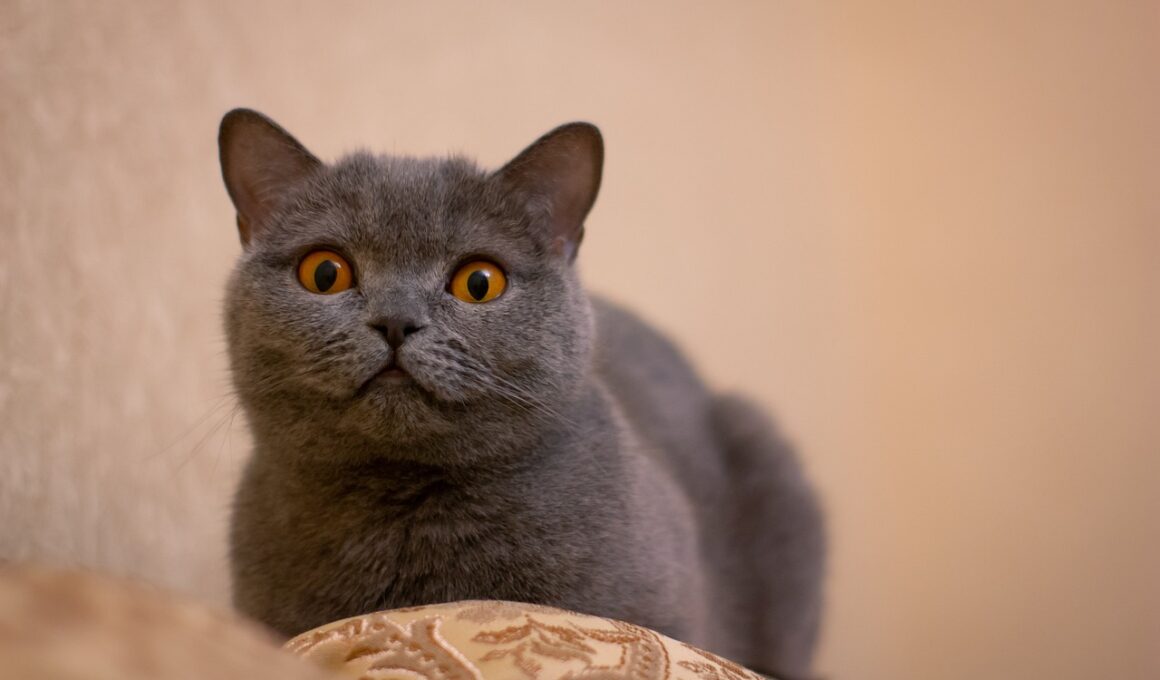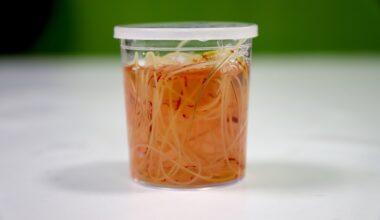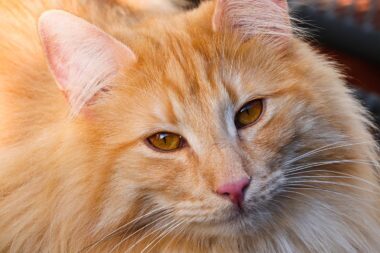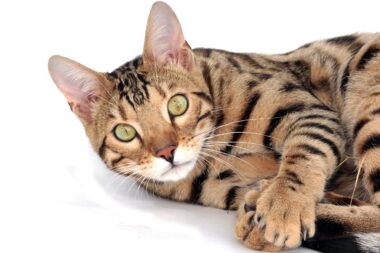Selecting Breeding Cats for Longevity and Health
Selecting the right breeding cats is crucial for promoting longevity and health in felines. Breeders must prioritize the overall well-being of their cats, which begins with selecting individuals that exhibit robust health and desirable traits. A meticulous evaluation of the cat’s lineage is an essential first step in this process. It helps ensure that genetic health conditions prevalent in specific breeds are mitigated. Additional considerations include assessing the temperaments of the breeding cats. Friendly and sociable cats are more likely to pass these traits onto their offspring. Regular health screenings and veterinary checkups are also fundamental. By ensuring that breeding cats are free of infectious diseases and hereditary disorders, breeders can significantly improve the health of future litters. It is critical to further consider each cat’s lifestyle and environment. A stable environment rich in physical and mental stimulation contributes immensely to a cat’s overall health and longevity. These factors work hand in hand to foster an excellent breeding program focused on producing robust kittens that are set for a long, vibrant life.
In addition to health screening, breeders should also focus on genetic diversity within their breeding programs. This is essential to mitigate the risk of hereditary diseases and enhance the overall vigor of the population. A diverse gene pool contributes significantly to the longevity and resilience of the breed. Incorporating bloodlines from other breeders or recognized catteries can introduce new genetic traits that benefit the offspring immensely. It is vital to maintain a careful balance, though, to avoid accidental cross-breeding with incompatible or undesirable traits. Keeping meticulous records and databases of each cat’s lineage can aid in clarifying the gene sets carried by each breeding cat. Such information allows breeders to make informed decisions regarding which cats to mate. Implementing these practices increases the chances of producing healthy kittens while preserving their breed’s characteristic qualities. Incorporating consistent monitoring and health assessments within a breeding program is emphasized. Regular veterinary visits enable early detection of potential health issues, allowing for timely interventions. This proactive approach fosters an overall commitment to the health and longevity of the breeding population.
The Importance of Nutrition
Nutrition is paramount when selecting breeding cats, as it plays a vital role in promoting longevity and overall health. Providing a balanced diet tailored to the specific needs of breeding cats ensures they are nourished for breeding and general wellness. Quality cat food with high protein content, essential fatty acids, and adequate vitamins keeps cats healthy and enhances fertility rates. Understanding each cat’s unique nutritional requirements based on its age, weight, and health status helps breeders devise a suitable feeding plan. It is also essential to maintain proper hydration, ensuring breeding cats have access to fresh, clean water. In addition to commercial cat food, incorporating fresh meats, vegetables, and occasional treats can diversify their diet. Furthermore, consulting with a veterinarian regarding any dietary supplements is often beneficial, supporting optimal health for the breeding cats. Monitoring their weight and adjusting feeding portions is crucial to avoid obesity and related health complications. Proper nutrition not only contributes to the cats’ well-being but also positively influences their reproductive capabilities and the health of future kittens.
Behavioral assessments are another critical aspect of selecting breeding cats. Understanding the temperamental traits of potential breeding cats helps ensure the well-being of both the parents and the resultant litters. Evaluating a cat’s behavior involves observing its interactions with humans and other animals. Friendly, adaptable, and social cats are more likely to produce well-adjusted kittens. This consideration is essential since behavioral traits can often be inherited genetically. Incorporating temperament evaluations alongside health assessments provides a holistic view of a cat’s suitability for breeding. In some cases, breeders may consider consulting pet behaviorists or trainers for further insights. By documenting each cat’s behavior, breeders can create a behavior profile for each individual, making informed decisions about potential pairings. It is essential to avoid breeding overly aggressive or fearful cats, as these traits may be passed onto their offspring. Socialization also plays a crucial role in shaping feline behavior, and exposure to various stimuli during the kitten stage sets the foundation for a well-rounded adult cat.
Socialization and Environment
A nurturing environment is vital for breeding success. Socializing breeding cats from an early age fosters well-adjusted adults. Potential breeding cats should be comfortable in a variety of settings, which enhances their adaptability. Cats exposed to different environments, sounds, and people are generally more social and confident. Breeders must create a secure and stimulating environment, providing diverse entertainment options, which contribute to reducing stress levels. Adequate space also plays a crucial role; cats should have areas to explore, play, and rest undisturbed. Establishing routines can help maintain a sense of security for breeding cats and contribute to their emotional wellbeing. Creating a peaceful atmosphere through proper enrichment, such as climbing structures and play toys, ensures these cats remain mentally healthy. Additionally, considering the social dynamics among breeding cats is essential, as too many competitive or aggressive interactions can lead to stress, affecting overall health. A comfortable living situation supports not only the cats’ welfare but also maximizes breeding outcomes, ultimately leading to healthier and happier kittens.
Implementing ethical breeding practices is essential for sustainable cat breeding. Breeders must prioritize the health and welfare of breeding cats, focusing on suitable pairings to mitigate hereditary health issues. A responsible breeding plan extends beyond simply producing kittens; it emphasizes the importance of each cat’s well-being throughout its life. Ethical breeders also remain committed to the adoption process of their kittens, ensuring they are placed in loving homes that can meet their needs. Continuing to support kitten buyers post-adoption fosters a strong bond between breeders and pet owners, promoting responsible pet ownership. It is essential to educate potential buyers about the breed’s specific health concerns and care requirements. Providing resources and assistance creates a supportive community around cat ownership. A commitment to ensuring that every kitten has the best possible start in life contributes to the reputation of breeders and the overall health of the breed. In doing so, breeders not only contribute to the longevity and health of their breeding cats but also enhance the overall perception of responsible cat breeding.
Conclusion
In conclusion, selecting breeding cats focused on longevity and health requires a multifaceted approach. Factors such as health screenings, nutrition, behavioral assessments, and nurturing environments all contribute significantly to the successful breeding of healthy cats. Breeders must prioritize genetic diversity, ensuring robust offspring that exhibit desirable traits. Addressing these factors through ethical breeding practices creates a foundation for sustainable breeding that prioritizes feline welfare. By investing time and effort into selecting the right breeding cats and providing appropriate care, breeders can enhance the overall quality of health among their breeding stock. The commitment to responsible breeding practices ultimately ensures that the cats remain healthy and that their kittens inherit excellent genes and traits. This dedication not only promotes longevity in individual cats but also contributes to the advancement of the breed over time. Through continued education and an unwavering focus on health and welfare, the prospects for future generations of cats can be confidently ensured, leading to a thriving community of well-bred felines.
To conclude, adopting these sustainable breeding practices will create a positive impact in the cat breeding community. By focusing on health, behavior, and nutrition, breeders can contribute to the welfare of the cat population. Collaborating with veterinary professionals, behaviorists, and other breeders enhances knowledge and improves practices. Working together towards a common goal allows for shared resources and experiences that benefit everyone. Sustainable breeding ensures not only the health of individual cats but also preserves diverse breeds for generations to come. Educational programs and conferences support breeders in staying current with the latest advancements and findings in feline health. Networking within the community fosters a sense of camaraderie and a shared passion for responsible cat breeding. Those who invest in their breeding practices position themselves as leaders in the field of sustainable breeding. Through dedication and continuous improvement, it’s possible to advance the welfare of cats while promoting responsible ownership. In turn, this leads to happier and healthier feline companions thriving in loving homes. The future of cat breeding lies in our ability to prioritize these sustainable practices for the well-being of generations to come.





